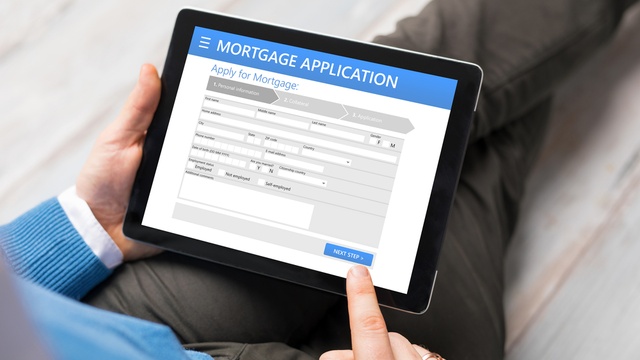Getting a mortgage can feel like climbing a mountain. You take one step at a time.
A mortgage in principle is one of your first steps. It feels good to get one, but things can still go wrong. Let's look at what might happen and how to be ready.
What is a mortgage in principle?
A mortgage in principle is a statement from a bank or lender. It shows how much they might lend you to buy a home. It's not a final offer, but more like a promise to consider lending to you.
When you get a mortgage in principle, the lender checks some of your details. They look at your income, your spending, and do a quick credit check. Then they tell you how much they might lend you.
This helps you know what price homes you can look at. It also shows sellers that you're serious about buying.
How reliable is a mortgage in principle?
A mortgage in principle is a good first step, but it's not set in stone. The lender hasn't done all their checks yet. They've only looked at basic information.
When you apply for the actual mortgage, the lender will look much deeper. They'll check all your income details. They'll look at your spending more closely. They'll do a full credit check. They'll also check the home you want to buy is worth what you're paying.
About 1 in 10 people with a mortgage in principle end up not getting their mortgage.
What can go wrong after a mortgage offer?
Even after you get a full mortgage offer, things can still go wrong:
- The lender might find issues with the property during the survey
- Your financial situation might change (like losing your job)
- The seller might pull out of the sale
- There could be problems in the property chain
- Interest rates might change, affecting how much you can borrow
It's important to keep the lender updated about any changes in your situation. Being honest from the start helps avoid problems later.
How long do mortgage in principles last?
Most mortgage in principles last between 60 and 90 days. This gives you time to find a home you want to buy.
If your mortgage in principle runs out before you find a home, don't worry. You can usually apply for a new one. But remember that each new application might mean another credit check.
Some lenders will extend your mortgage in principle if you ask them. This can be better than making a new application.
Does a mortgage in principle guarantee a mortgage?
No, a mortgage in principle does not guarantee you'll get a mortgage. It's more like a first step than a final decision.
The full mortgage application is much more detailed. The lender will check everything in greater detail. They'll also assess the property you want to buy.
Some reasons you might be turned down include:
- Problems with your credit history that weren't spotted in the initial check
- Not having enough deposit
- Issues with the property
- Changes in your income or employment
- Changes in lending rules or interest rates
How can I apply for a mortgage in principle?
Applying for a mortgage in principle is easier than you might think. You can do it in several ways:
- Through a mortgage broker: A broker can help you apply to several lenders at once. They know which lenders are more likely to accept you based on your situation.
- Using online mortgage platforms: These compare deals from many lenders and can help you apply for a mortgage in principle.
- Directly with a bank or building society: You can visit your local branch, call them, or use their website.
When you apply, you'll need to provide some basic information:
- Your name, date of birth, and address history for the last three years
- Details about your job and income
- Information about your monthly spending
- Details of any loans or credit cards you have
You don't usually need documents at this stage, but having recent payslips and bank statements ready can help you give accurate information.
Most lenders will give you an answer quickly – often within minutes if you apply online. Some might take a day or two if they need to look at your details more carefully.
Once you have your mortgage in principle, you'll receive a certificate or letter that you can show to estate agents and sellers. This proves you're a serious buyer who is likely to get a mortgage.
Why is my mortgage in principle so low?
If your mortgage in principle is lower than you expected, there could be several reasons:
- Your income might be lower than lenders want to see
- You might have other debts that reduce how much you can borrow
- Your spending habits might suggest you can't afford higher payments
- There might be issues with your credit score
- The lender might be using strict lending rules
If you're unhappy with the amount, you can talk to the lender. Ask them why it's low and if there's anything you can do to increase it. You can also try other lenders who might offer more.
Can you have more than one mortgage in principle?
Yes, you can have more than one mortgage in principle at the same time. This lets you compare offers from different lenders.
But be careful about how many you apply for. Some mortgage in principles involve hard credit checks that can affect your credit score. Too many checks in a short time can make lenders worried.
It's often better to use a mortgage broker. They can help you find the best deal without making lots of applications.
Does a mortgage in principle include deposit?
A mortgage in principle shows how much the lender might lend you, not including your deposit. You need to add your deposit to know the total you can spend on a home.
Example: If you have a £20,000 deposit and a mortgage in principle for £180,000, you could buy a home worth up to £200,000.
Most lenders want you to have a deposit of at least 5% of the property's value. A bigger deposit often gets you better interest rates and makes it more likely you'll be approved.
Does a mortgage in principle affect my credit score?
It depends on the type of credit check the lender does:
- A soft credit check doesn't affect your credit score. Many lenders use this for mortgage in principles.
- A hard credit check does show on your credit report and might lower your score slightly.
You can ask the lender which type of check they'll do before you apply.
Even if a lender does a hard check, the effect on your credit score is usually small. Your score will typically recover within a few months if you don't make other applications.
Remember, getting a mortgage in principle is just the first step. Be prepared for the full application process.
Stay honest with the lender and keep your finances healthy while you're house hunting. This gives you the best chance of turning your mortgage in principle into a real mortgage offer.
Zubin is a personal finance writer with an extensive background in the finance sector, working across management and operational roles. He applies his experience in customer communication to his writing, with the aim of simplifying content to help people better understand their finances.
![Email icon]()
Become a money maestro!
Sign up for tips on how to improve your credit score, offers and deals to help you save money, exclusive competitions and exciting products!
Find this useful? Share it with others!









